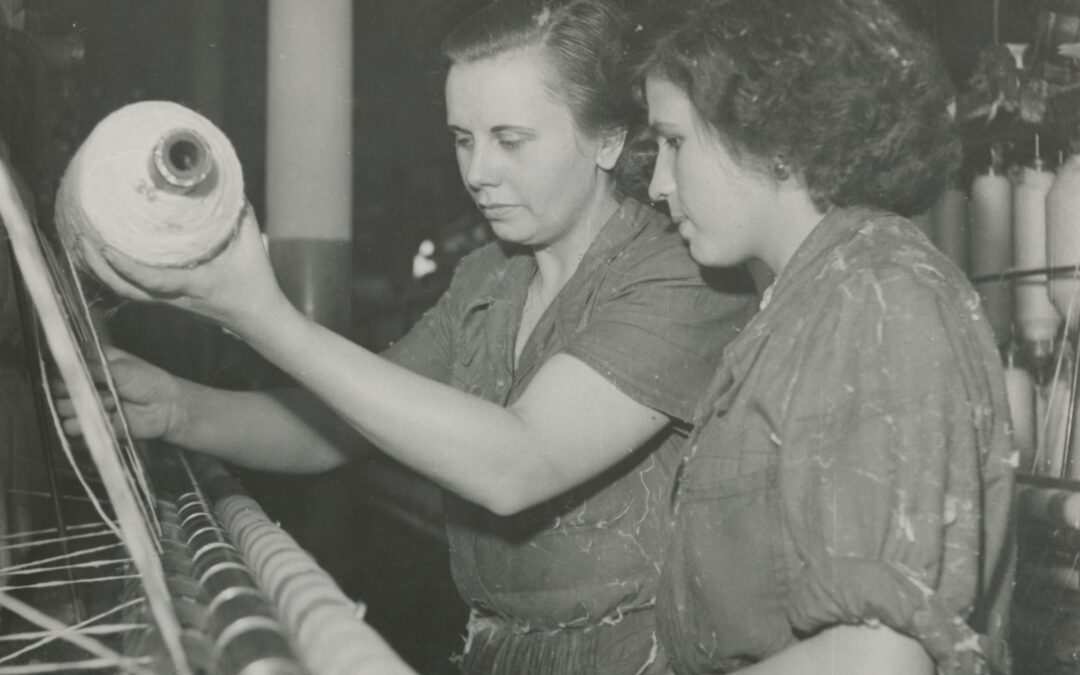The upper house of Poland’s parliament has unanimously passed a resolution to honour a largely forgotten strike of mostly female textile workers in the city of Łódź which took place 50 years ago this week.
The Senate said the events of 1971 were a “unique example of a bloodless and successful social protest” as well as “one of the largest in post-war Polish history”. The workers’ action prompted Poland’s communist authorities to roll back plans for wage cuts and price hikes.
50 lat temu, 10 lutego 1971 r., wybuchł strajk łódzkich włókniarek.
Jeden z największych ale i najsłabiej pamiętanych strajków w PRL. Strajk zakończył się sukcesem – władze wycofały się z podwyżek cen żywności.
Fot. PAP/CAF/W. Rozmysłowicz pic.twitter.com/F9AqJqgv2H
— Akcja Socjalistyczna (@socjalistyczna) February 10, 2021
The grassroots strike broke out on 10 February 1971 at the Marchlewski Cotton Industry Plant in Łódź, a city often dubbed the “Polish Manchester” for its industrial history. It came in response to government plans to increase the prices of food and everyday items and cut salaries in January.
As wages in light industry fell well below the national average, workers still endured tough working conditions of high humidity, noise and dustiness, as well as old machinery and unrenovated warehouses. Discontent boiled over into a spontaneous strike at key wool and fibre factories in the city.
At its climax on 15 February, following an unpopular visit by Prime Minister Piotr Jaroszewicz, the movement spread to 30 plants and involved 55,000 people. It was also “unique” in its composition of “mainly women”, such as spinners and seamstresses, according to the Senate’s resolution.
The events in Łódź came just two months after protests over the price hikes first broke out along the Polish coast in December 1970, but were heavy-handedly suppressed by the army, resulting in 45 people being killed and hundreds more wounded.
Yet, unlike the better-known bloody demonstrations of 1970, the Łódź strikes were ultimately successful in forcing the government to back down from its plans on 15 February and did not precipitate similar crack-downs.
The Senate hailed the “great caution, wisdom and responsibility” of confining the strikes to workplaces rather than “going out into the street, where the tragedy could have occurred”.
10 lutego 1971 roku wybuchł strajk łódzkich włókniarek, jeden z największych w historii PRL. Strajk zakończył się wycofaniem przez komunistyczną władzę podwyżek cen żywności. W trakcie rozmów z komunistami jedna z włókniarek pokazała delegacji rządowej… gołe dupsko👍 pic.twitter.com/f8zGDdESJA
— ZbyszekDzięgielewski (@zbig1964) February 11, 2019
Thursday’s resolution, passed by all 86 members of the Senate present, expressed “the highest appreciation for all protesters, their courage and determination, as well as their wisdom and foresight as to the manner and form of the protest”.
“It is important to commemorate the anonymous heroines of those times – ordinary, wonderful, hard-working women from Łódź,” said Hanna Zdanowska, the city’s mayor, at the event in the Senate.
She added that the strike should be permanently included in the nationwide teaching of “the history of the struggle for freedom and dignity of Polish women” at a time when “women’s rights are still such an important element of the fight for a Poland that truly protects rights, equality and the constitution”.
Main image credit: Ignacy Płażewski/Wikimedia Commons (under CC BY-SA 3.0 PL)

Maria Wilczek is deputy editor of Notes from Poland. She is a regular writer for The Times, The Economist and Al Jazeera English, and has also featured in Foreign Policy, Politico Europe, The Spectator and Gazeta Wyborcza.



















